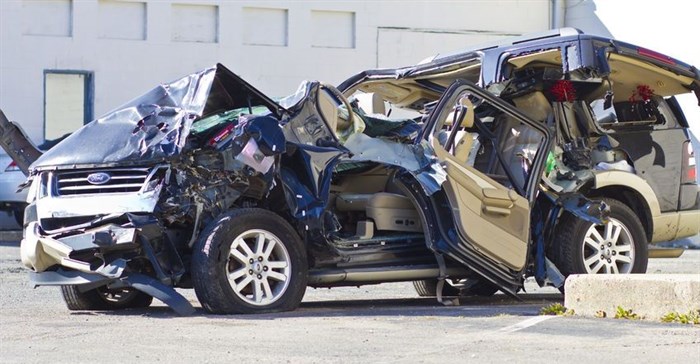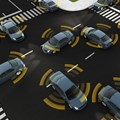Drunk driving is an ongoing problem in South Africa that no amount of media coverage seems to be curbing. Despite ramped up awareness campaigns, highly publicised death toll statistics, and the imminent threat of a demerit system, South African drivers continue being notoriously irresponsible when it comes to drinking and driving.

Totalled SUV automobile after drunk driving accident. © Jonathan Weiss via
123RFThe people who get behind the wheel of a car while under the influence tend to either genuinely believe they are sober enough to drive, or they are inebriated enough to believe in their own invincibility.
They don't generally consider the possibility of causing or being involved in an accident, and the thought of being pulled over isn't terrifying enough in the face of the prevalence of corruption and bribery. As such, they drive drunk anyway.
It's not enough
Traffic laws and increased roadblocks are somewhat of a deterrent, as is the knowledge that insurance companies will not pay out in the event of an accident caused by a drunk driver. Unfortunately, it is not enough, and the marketing around the insurance component is not visible enough for drivers to sit up and take notice.
So, if the current system and awareness campaigns aren't cutting it, what will work to bring down the terrifying death-toll statistics, and how can South Africans be a part of implementing a country-wide attitude shift towards driving under the influence of alcohol?
The pending demerit system should bring about some positive changes in the number of drunk drivers on our roads.
When the system is implemented, people are likely to be more careful of the way they drive. The possibility of having your license suspended or taken away for good, is definitely a deterrent for driving drunk.
People may still take chances in the initial stages of the demerit system, until they have their first points deducted. It's likely that they will only realise the gravity of possibly losing their license on the first points-deductible offence.
The concern is that there is no set date for the demerit system to be in effect, so drivers are still relatively unconcerned about the consequences. The effectiveness of the system will only be determined once it is implemented and working. However, I believe we will see a slow shift in driving behaviour when it happens.
Raja Jurdak and Salil S. Kanhere 23 Mar 2018 Giving drunk driving a bad rep
In the meantime, people should start being less lenient about driving under the influence of alcohol and other substances within their own circles. If the idea of drunk driving loses its 'cool' or 'rebel' associations, it is more likely to be considered distasteful and frowned upon.
In countries such as the UK, there is an aura of distaste around people who opt to drive drunk. It is socially frowned upon, and people actively discourage allowing their colleagues and friends to get behind the wheel after having a few drinks.
We should adopt the same mindset towards driving drunk in South Africa, where friends don't let friends drive drunk, and where people who do risk drunk driving are treated as social pariahs.
In many circles, there is a slowly emerging trend where people who admit to offering bribes are not always celebrated, but a few people will openly criticise them. The same attitude should be adopted with drunk driving.Unfortunately, most people will wag a teasing finger and gently, half-jokingly chastise those who admit to driving while under the influence. However, this criticism is not usually taken seriously. If a person is made to genuinely feel bad about their reckless behaviour, it will only be a matter of time before they start to change that behaviour.
Penwell Dlamini 29 Dec 2017 Meter or application based taxi services are increasingly popular and many people are opting for this option when they know they will be drinking. However, the recent spate of attacks against metered or app-based taxis is actively deterring people from making use of those services.
The reality is, that the number of drunk-driving associated deaths is exponentially higher than those related to the vendetta against metered taxi services. It is still much safer to take an Uber than it is to run the risk of death, or killing someone else while driving drunk.

































